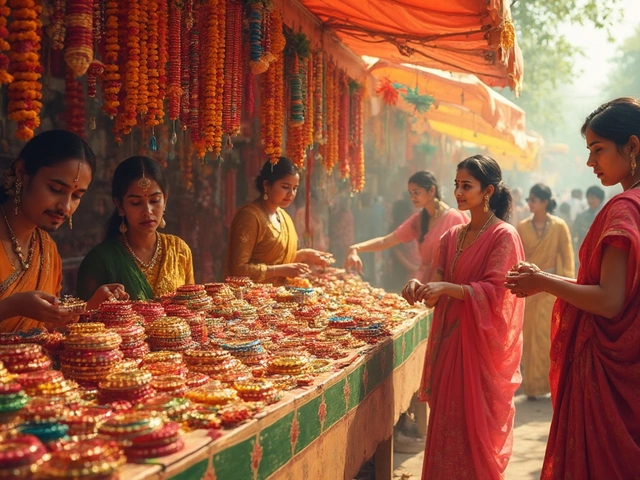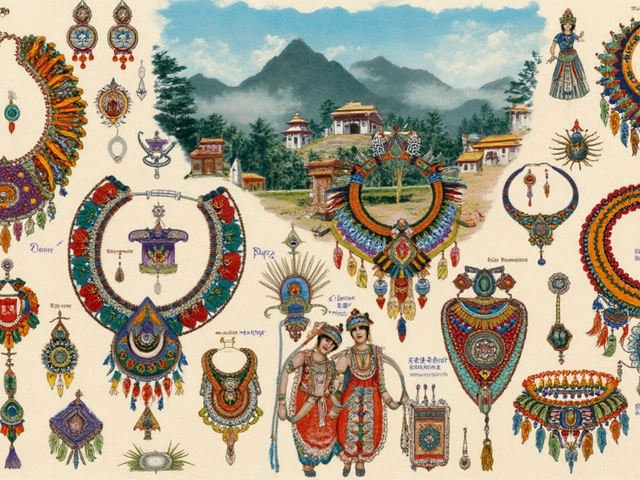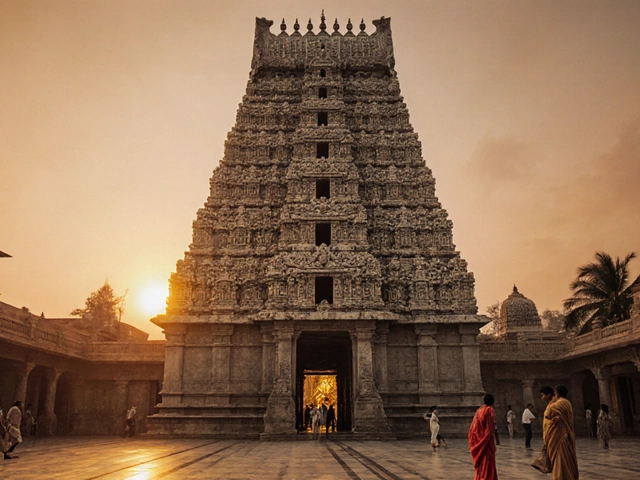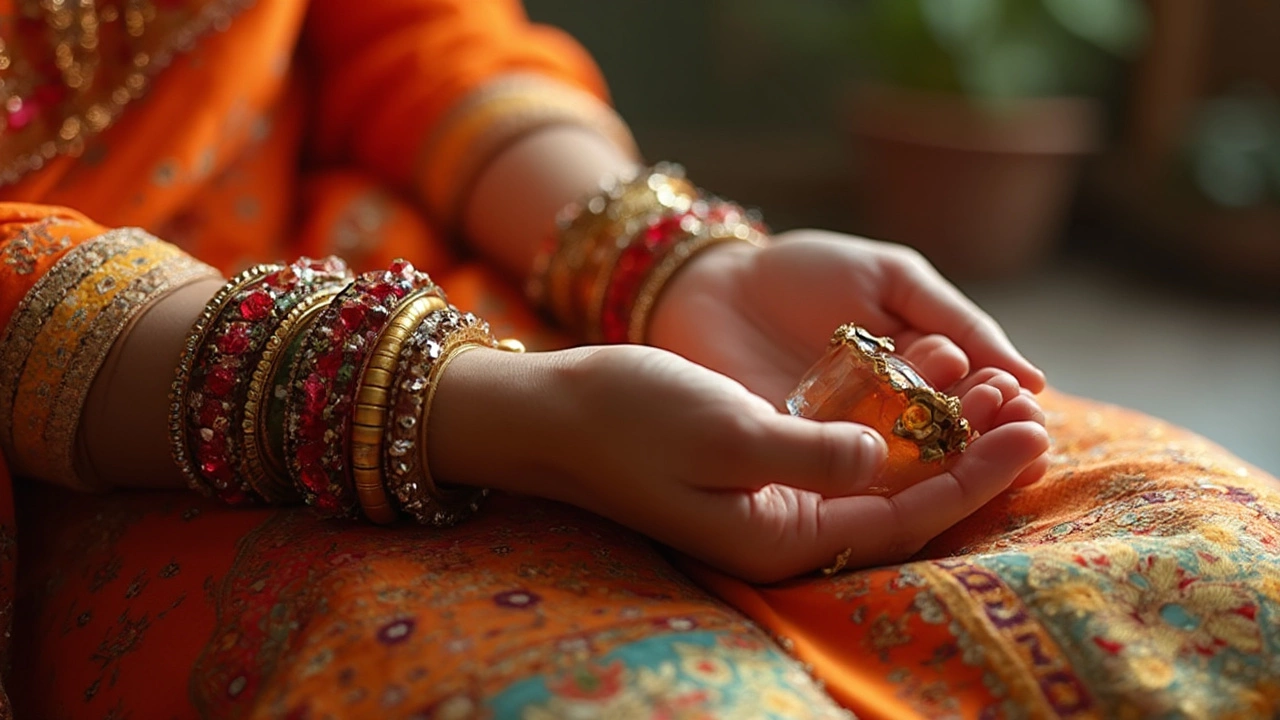
Crack. That sharp snap of a bangle breaking is one of those small moments that can hit surprisingly hard, especially if you grew up in a culture where those glass circles aren’t just jewelry, but something much deeper. The sound hangs around longer in your mind than you’d expect. Ever notice the way people react when a bangle breaks? You’ll see everything from a quick frown to a full-on gasp. Some shrug it off, others get noticeably anxious as if they heard bad news. So, what’s really behind all these reactions? Is it all about superstition, or do broken bangles mean something real?
The Layers of Meaning Behind Broken Bangles
Bangles aren’t just a style thing. In South Asia, especially India, Pakistan, Nepal, and Bangladesh, they’re loaded with meaning. Married women wear them as symbols of love, commitment, and good fortune. That’s why a broken bangle sends some people straight to Google or calling relatives. For Hindu married women, breaking a bangle—especially red or green ones—can fuel anxiety because there’s a belief that it’s a bad sign for their husband’s health or marriage itself. It goes deeper; certain festivals ask women to wear brand-new bangles for blessing and luck. In some traditions, breaking a bangle close to religious events may be seen as especially unlucky.
Flip to another part of the globe, and bangles mean other things. In the Caribbean or parts of West Africa, breaking a bangle isn’t drenched in gloom but might be brushed off as clumsy luck. In western cultures, people sporting bangles for fashion barely think twice if one snaps. The difference is wild: for some, it’s a big deal, for others it’s a case of “time to find a new set.” What you’ll notice is that the sting or shrug depends hugely on what you learned growing up, and how those little rituals stick around longer than you expect.
Why the big reaction, then? Think about it like this: when a wedding ring slips off or gets lost, it can feel symbolic. Same with bangles. They’re more than decoration; they’re a living piece of your daily rituals, colored by personal memories and beliefs. Even if you tell yourself you’re too logical for superstition, sometimes your mind still wonders what a broken bangle could mean for your luck, or your relationship, or the day ahead.
Beliefs, Superstitions, and Real-Life Voices
Let’s get into the superstitions, since they’re often what makes people nervous. In India, there’s a common saying that if a bangle breaks on its own, especially on the left hand, it removes negativity—almost like it’s “taking a hit” for you. But break one on the right hand, some say it’s not so great, especially for married women. Others insist each color of bangle carries its own weight: red for love, green for fertility, yellow for happiness. Break a green bangle? Some mothers will quietly replace them fast, just in case.
I asked a few friends about their experiences. One woman said her grandmother would gift a new set of bangles every year; if one broke, she’d tell her, “the bangle took your bad luck away—you’re safe now.” In another case, a young woman mentioned her mom gets visibly shaken if a bangle breaks, especially in the morning, connecting it with a “bad omen for the day.” Then there’s Pragati, who laughs off the whole idea, pointing out she probably smashed a dozen in her college days and nothing bad ever happened—unless you count losing her favorite pink pair.
Take a peek at some of the superstitions listed in a 2019 survey conducted in Delhi about daily rituals and beliefs. Here’s what the numbers showed:
| Belief | % of Respondents Agreeing |
|---|---|
| Broken bangle is a bad omen for marriage | 54% |
| Breaking a bangle brings good luck (removes negative energy) | 26% |
| Breaking bangles is just an accident | 13% |
| Unsure/No opinion | 7% |
That’s over half the people seeing broken bangles as a bad omen. But logic steps in too—plenty say it’s all random, just glass and gravity. There's always tension between old stories and the realities of a busy, messy life.
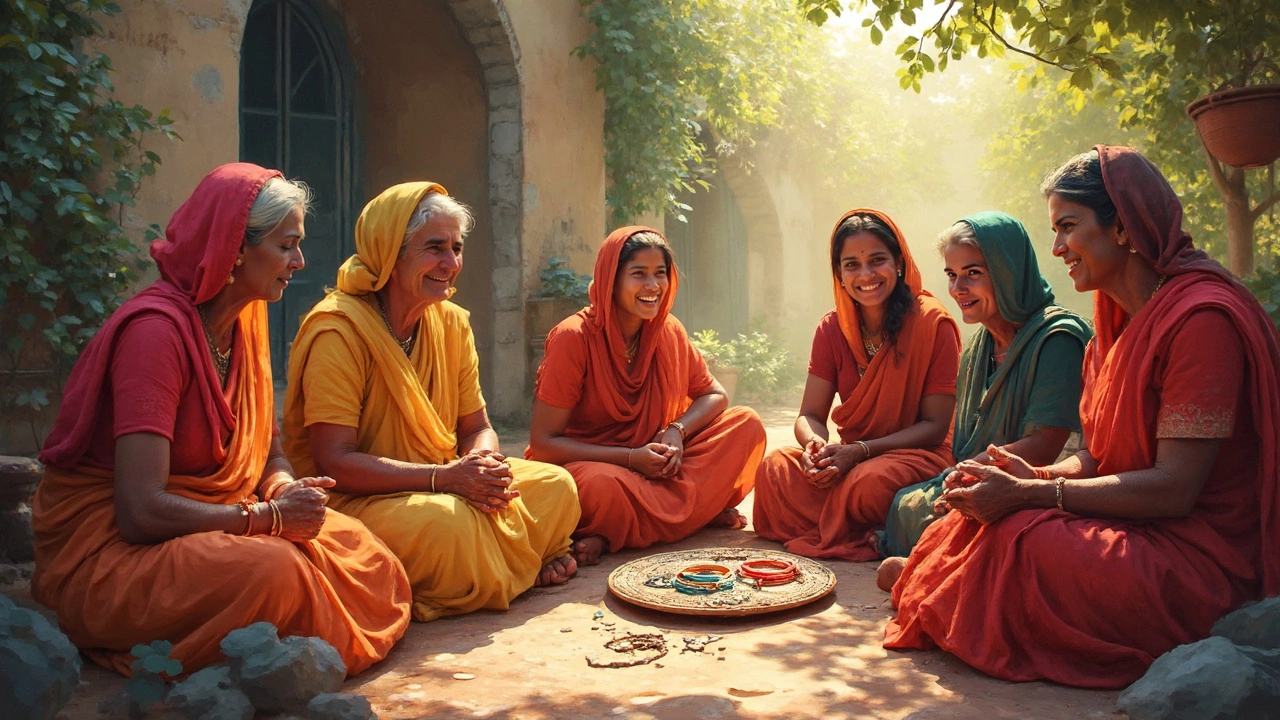
Bangle Symbolism Across Cultures
This is where things get fascinating. In different cultures, the breaking of bangles means different things—sometimes the total opposite of what you’d expect. In Sikh tradition, for example, the Kada (a metal bangle) isn’t fragile, so it rarely breaks—but symbolically, if it did, it could bring up practical concerns about safety at work or home. In West African cultures, brightly colored plastic or glass bangles are common, but breaking one usually means it’s time to buy new jewelry, maybe nothing more than that.
You also see regional twists within South Asia. Bengali women have an elaborate post-wedding bangle ritual involving conch shell and red coral bangles. If these break unintentionally, some families rush to religious touchstones for comfort, while others pop to the market for replacements, no drama. In contrast, Punjabi brides are blessed with ivory bangles (chura), and breaking one is generally avoided, but if it happens, mothers-in-law will find a way to turn it into a positive sign for change or safety.
British and American women, meanwhile, probably don’t have childhood stories about broken bangles. The worst they’ll say is, “Can I get a new one on sale?” At Indian weddings in the UK or US, traditions sometimes carry over, but the meaning of a broken bangle usually fades fast in those settings, with practicality winning out. You notice that, while the object is the same, each culture (and even each family) writes its own rules about what happens when it breaks.
One detail I found funny: in some corners of Pakistan, old-timey advice says to never throw out broken bangles during a full moon—it supposedly invites household trouble. My cousin tried it once as a dare and, as he tells it, nothing happened except someone stepped on the pile and got scolded.
Modern Tips: What To Do When A Bangle Breaks
So, the dreaded snap happens—what now? First, check for sharp edges. Those tiny pieces of glass or resin can actually cut deep. If you’re wearing bangles near kids, sweep the area quickly. Don’t want to risk a nasty surprise in a bare foot moment later. If you attach meaning to your bangles, it helps to have a gentle reset ritual. Some women like to toss broken pieces into flowing water, believing it helps wash away bad energy. Others wrap them in paper and throw them away—out with the old vibe, in with the new. You pick one that feels right for you.
If your bangle broke during a big moment (birthday, family prayer, wedding), and you’re superstitious, try this: replace it with a new one as soon as you can. Many believe a quick swap keeps luck steady. If you’re not one for tradition, treat it as a chance to refresh your style. Ever thought about mixing colors or materials? Maybe try bangles made from metal or wood, which tend to last longer than thin glass. If you’re like my wife Miranda, you might end up with drawers full of mismatched singles. She keeps the prettiest broken pieces for crafts—gluing them onto picture frames or even using them in garden mosaics. Turns out, even misfortune can lead to something cool.
If you’re worried about superstition but want to stay practical, just take a deep breath. There’s no rule saying you have to feel bad about a broken bangle, even if plenty of folks around you might shake their heads dramatically. Only you decide how much meaning to give that moment. And if you do want to tip the scales toward the positive, try sharing a story or a laugh about the break. It takes the weight off the ritual, and next thing you know, it’s just another thing that happened, not a curse or warning sign.
Got a sentimental bangle? Maybe a family hand-me-down? You might want to get it repaired. Jewellers can sometimes fuse glass or reshape metal bangles. If that isn’t possible, consider saving a piece of it for memory’s sake—keep it in a memory box or string it onto a keychain so it stays with you in a new way. There’s always another angle if you’re willing to look beyond the superstition.
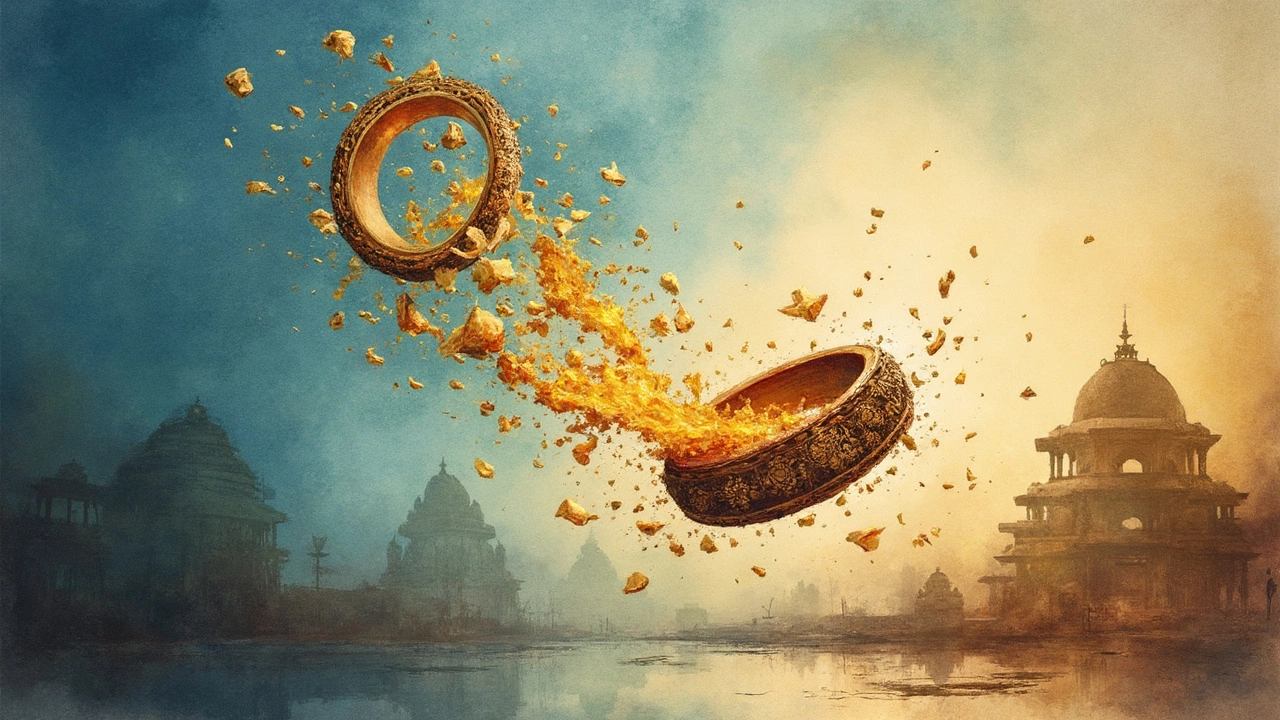
Do Broken Bangles Really Bring Bad Luck or Is It Something Else?
This is probably the biggest mystery of all. There's no hard evidence linking a snapped bangle to anything more than gravity meeting glass. Psychology loves to remind us that our brains are wired to find patterns, especially after something surprising happens. So when you break a bangle, your mind might start piecing together every minor misstep that follows—blaming them on a “bad omen.” But pause and look at it logically. You’ve probably broken a bangle before, and life just kept rolling.
The “bad luck” idea often goes hand in hand with other events: a hard week at work, a fight at home, a forgotten appointment. It’s tempting to see the bangle break as a warning, but most people who track these things will tell you there’s no real trend—sometimes, the worst thing that happens is a cut finger. On the flip side, those who believe in the positive power of superstition use the breaking as a reset, a way of letting go of stress or negativity. These kinds of rituals can feel empowering, especially if paired with a fresh start or a big decision.
Take this little nugget: in 2021, a behavioral psychology paper out of Mumbai University found that rituals—even if you logically know they have no magical effect—still made participants report less anxiety after a minor mishap. The ritual, they found, gives a sense of closure. Maybe breaking a bangle gives you a nudge to pause, reset, and move forward. There’s power in the meaning you attach to things, even if that meaning is all your own invention.
You don’t have to believe banging glass together brings destiny. But you can use the moment for whatever you need—an excuse to buy something pretty, a reminder to stay careful, or a new story that fits your day. Every time you reach for a bangle, maybe it’s not about fearing the break, but enjoying the sound and shimmer of the ones you still have.

